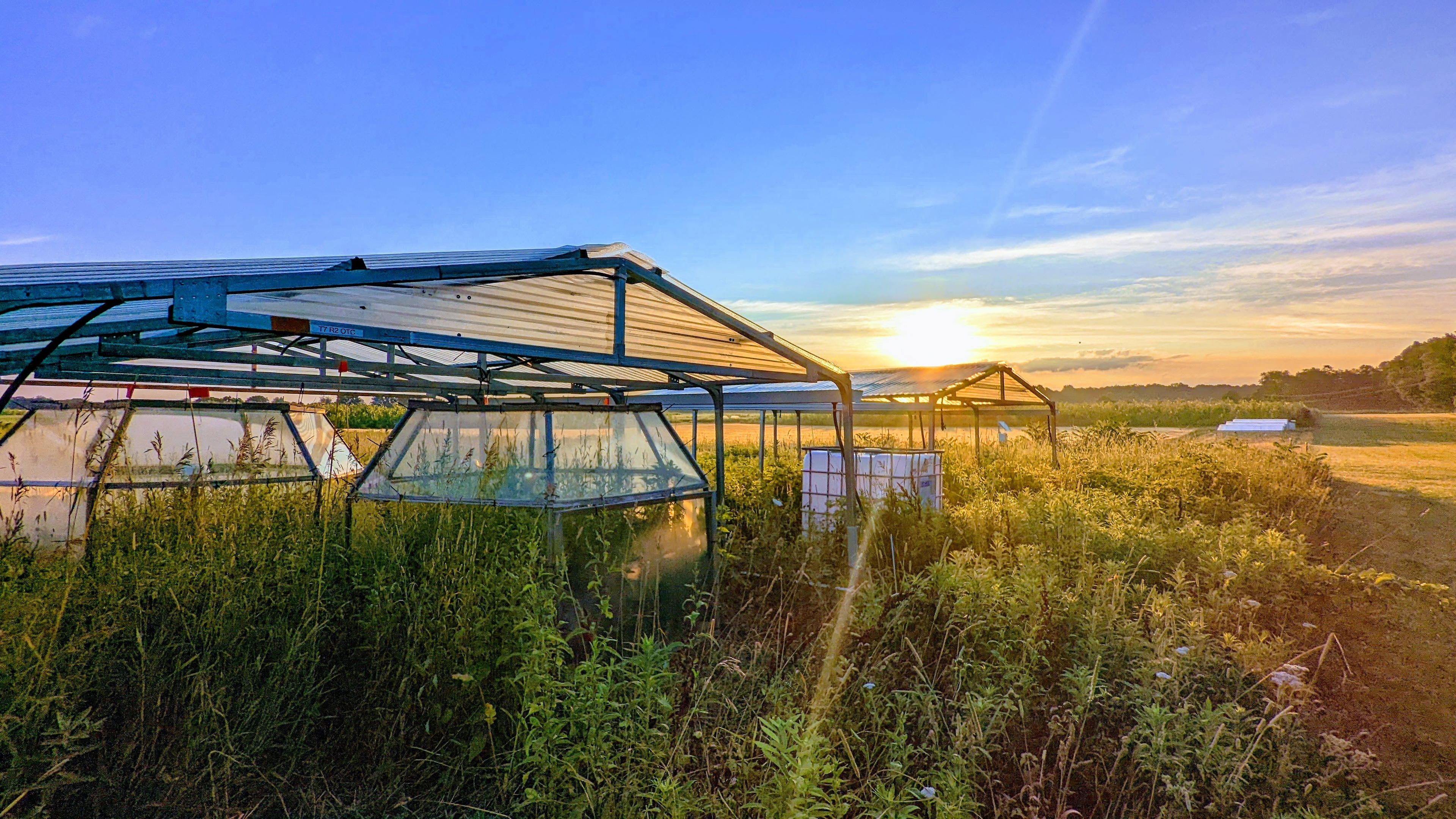
Some Studies Might Not Paint Full Picture of How Plants Respond to Climate Change

Open top chambers beneath rainout shelters at Kellogg Biological Station LTER. Photo: Kara Dobson
Scientists may be underestimating how plants will respond to rising global temperatures when they study hot summers but not warming winters, Michigan State University ecologists found.
An MSU team synthesized data from 126 simulated warming experiments from across the globe to provide insights into how plants respond to a hotter climate. In their findings, now published in Global Change Biology, they learned that experiments with warming only during summer months showed less-pronounced results than year-round experiments. This could mean that summer-only experiments don’t account for the important effects of winter warming and may provide conflicting results.
The study also unveiled a lack of research on the effects of warming on non-native species, potentially hindering scientists’ ability to understand how these species respond to climate change. The authors identified knowledge gaps in current studies, suggesting that future warming experiments should last longer to allow for multiple seasons and years of warming.